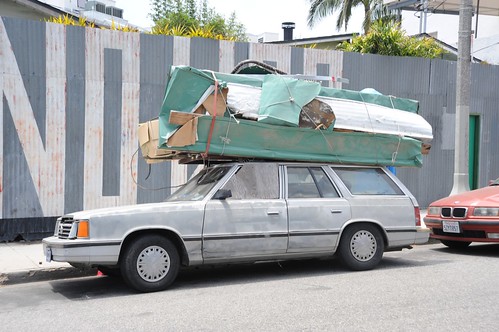The Santa Monica Daily Press has an interesting article up about the State Parks and Wildlife Conservation Trust Fund Act of 2010. If passed, it would create free parking at State Parks along the coast, while adding $18 to all vehicle registrations in California to support the park system. There is a great likelihood this Act may pass.
I hope that all of the “action” groups around here are considering this bill and the fact that there will be a lot more RV’s moving to Venice because of our “lax” overnight enforcement of vehicular dwelling. If you think we have it bad now, wait until this act passes and local State Parks provide ocean front free parking during the day. Where do you think they will go at night? They sure won’t be parked in Santa Monica!
From The Santa Monica Daily Press:
A trip to the beach is an inexpensive way to pass a summer day, and it could become even more recession-friendly if voters this November approve a proposed ballot initiative that would do away with parking fees for in-state drivers at all California state parks — including at Santa Monica’s state-owned beaches.
Of course, there’s a catch.
The proposed measure, called the State Parks and Wildlife Conservation Trust Fund Act of 2010, would add an extra $18 per year to California vehicle owners’ annual registration fees to boost revenue for the ailing park system.
While the measure’s passage would be great news to frequent state park visitors, those responsible for overseeing Santa Monica’s beaches say it could also present a daunting enforcement and management challenge.
“It’s really a logistical nightmare in terms of managing the parking,” said Barbara Stinchfield, City Hall’s director of Community and Cultural Services.
And it’s now official: Voters will have their say on the idea in the next election. California Secretary of State Debra Bowen last Thursday officially qualified the measure for the ballot, with supporters saying they turned in 760,000 signatures — nearly twice the number required for qualification. A coalition of teachers, public health advocates and civil rights organizations are behind the initiative.
To continue reading the article click here.

























